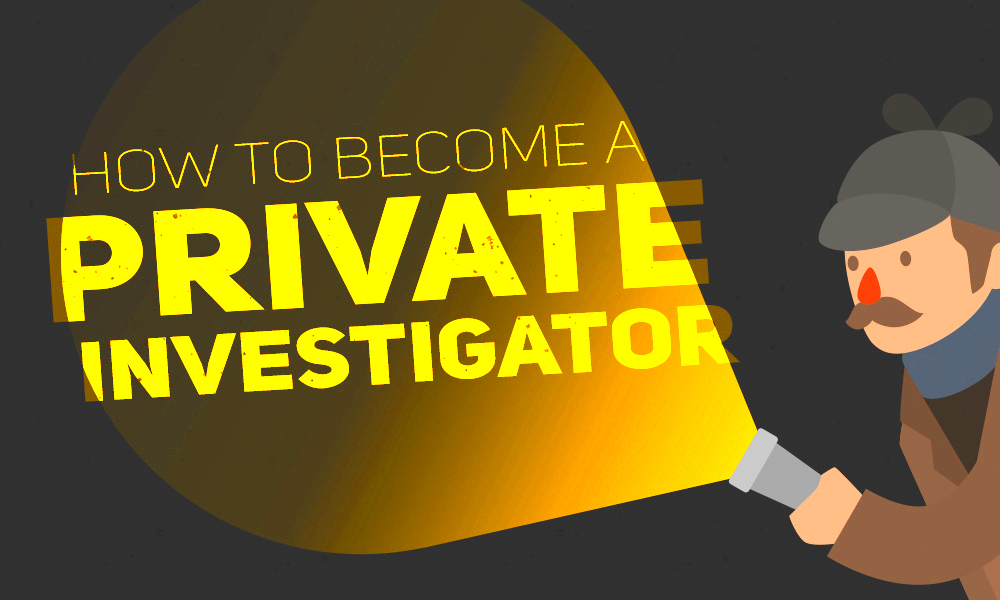Becoming a freelance private investigator can be an exciting and rewarding career path. As a private investigator (PI), you'll often be tasked with gathering information, solving mysteries, and helping clients with various types of investigations. Freelance PIs work independently, offering services on a project basis, which allows them to have control over their schedule and workload. Whether you're interested in working on criminal cases, corporate investigations, or personal matters like infidelity or missing persons, freelancing offers a variety of opportunities. But just like any business, it requires skill, perseverance, and the ability to market your services effectively.
Skills and Qualifications Needed for Freelance Private Investigators

To succeed as a freelance private investigator, there are several skills and qualifications you’ll need to develop. While formal education in criminal justice or law enforcement is beneficial, it's not always necessary. Here's a list of key skills and qualifications that can help you in this field:
- Critical Thinking: PIs must be able to analyze information, make connections, and form conclusions based on evidence.
- Attention to Detail: Every piece of information can be important, so paying attention to small details is crucial.
- Strong Communication Skills: You’ll need to write clear reports, communicate effectively with clients, and sometimes interview witnesses or suspects.
- Research Skills: A big part of being a PI involves conducting thorough research using various databases, records, and public information.
- Discretion and Ethical Conduct: PIs often deal with sensitive information, so it’s essential to handle all cases professionally and ethically.
- Legal Knowledge: Understanding the legal limitations and guidelines in your jurisdiction is crucial to avoid crossing any lines.
In addition to these skills, it's often helpful to complete a formal PI training program and obtain a license in your state or country, as many jurisdictions require it for private investigators.
Also Read This: Is Fiverr Good for Designers?
How to Get Started as a Freelance Private Investigator

If you’re eager to get started as a freelance private investigator, here’s a step-by-step guide that can help you make the transition from an aspiring investigator to a successful freelancer:
- Research the Requirements: Each location has its own rules regarding private investigation. Some places require formal education, training, or licensing. Start by finding out what is necessary in your area.
- Get the Right Training: While you can gain skills through experience, formal PI training can give you the knowledge needed to operate effectively. Many institutions offer courses tailored to private investigators.
- Obtain Your License: In many regions, a license is required to work as a private investigator. This might involve passing a background check, completing a set number of training hours, or gaining work experience under a licensed PI.
- Set Up Your Business: As a freelancer, you'll need to register your business, decide on a name, and handle the legal and financial aspects, like taxes and insurance.
- Market Your Services: Use a professional website, social media, and local networking to promote your services. Clients are more likely to hire you if they know you’re a credible and trustworthy investigator.
- Network with Other Professionals: Building relationships with other PIs, law enforcement, or legal professionals can help you get referrals and better understand the industry.
By following these steps and maintaining a high level of professionalism, you can start your freelance private investigation business and grow your career over time.
Also Read This: Top Whatsapp Group for Fiverr Gig Exchange
Building Your Reputation and Client Base
In the freelance private investigation business, building a solid reputation is key to success. Since many clients will rely on your skills and discretion, word-of-mouth recommendations and a good reputation will help you attract repeat clients and new business. Here's how you can build your reputation and grow your client base:
- Deliver High-Quality Work: Always provide the best service possible. Whether it’s gathering evidence or conducting interviews, being thorough and professional is essential.
- Network with Professionals: Building relationships with lawyers, law enforcement, or other investigators can help you gain credibility and possibly get referrals.
- Ask for Reviews: Positive client reviews can go a long way. Don’t hesitate to ask satisfied clients to leave reviews or testimonials for you on your website or other platforms.
- Stay Visible Online: Create an online presence with a professional website and social media profiles. This helps potential clients find you and see your work.
- Offer Free Consultations: Offering initial consultations can help potential clients feel more comfortable with you before committing to a full investigation.
- Be Ethical and Confidential: Trust is important. Clients need to know that you’ll handle their cases with integrity and confidentiality.
By following these steps and always providing excellent service, you’ll quickly establish yourself as a reliable freelance investigator with a loyal client base.
Also Read This: What Are the Requirements to Get Started on Fiverr?
Tools and Resources for Freelance Private Investigators
Being a private investigator requires not just skill but also the right tools and resources. As a freelancer, having the necessary equipment will help you perform your work more efficiently and effectively. Here are some essential tools every freelance private investigator should have:
- Surveillance Equipment: Cameras, binoculars, GPS trackers, and audio recorders are often used in investigations. High-quality tools will ensure you capture the right evidence.
- Online Databases: Access to public records, social media platforms, and specialized databases can provide valuable information for your investigations.
- Case Management Software: Software like Clio or MyCase can help you manage client information, track hours, and organize case files. This is essential for staying on top of your workload.
- Background Check Tools: There are numerous background check services available that can help you dig deeper into someone’s history and uncover crucial information.
- Communication Tools: A secure, encrypted phone line or messaging system is important to ensure confidentiality when communicating with clients or witnesses.
- Legal Resources: Books, websites, or legal consultations that help you stay updated on laws and regulations governing private investigations in your region.
Having the right tools can make a huge difference in the quality of your work, so it’s important to invest in professional equipment and resources that will support your investigations.
Also Read This: Can You Sell Erotica on Fiverr? Exploring the Possibilities
Challenges Faced by Freelance Private Investigators
While being a freelance private investigator can be a rewarding career, it does come with its share of challenges. Knowing these challenges ahead of time can help you prepare and navigate the ups and downs of the profession. Some of the common challenges freelance PIs face include:
- Unpredictable Income: Since freelance work is often project-based, income can be inconsistent. There may be periods of plenty, followed by dry spells with little work.
- Dealing with Clients: Managing client expectations can be difficult. Not all clients will understand the complexities of an investigation or the time it takes to gather information.
- Legal and Ethical Boundaries: Staying within the law while gathering information can sometimes be tricky. You must constantly be aware of what’s allowed in your jurisdiction and ensure you’re operating ethically.
- Safety Concerns: Private investigations can sometimes involve dangerous situations. Whether you're tailing someone or gathering evidence in risky areas, safety must always be a priority.
- Competition: The field of private investigation is competitive, especially in freelance work. Building your reputation and finding clients can be difficult at times, particularly when just starting out.
- Keeping Up with Technology: Technology is constantly changing. Staying updated on new tools, resources, and surveillance methods can be challenging but is necessary to stay competitive in the field.
Being aware of these challenges can help you take proactive steps to mitigate them, whether that’s by budgeting for lean months, investing in new technologies, or networking to find new clients.
Also Read This: What Freelance Architects Typically Earn
Legal and Ethical Considerations for Freelance Private Investigators
As a freelance private investigator, understanding the legal and ethical boundaries of your work is crucial. You must operate within the law to avoid facing legal consequences and maintain your professional integrity. Here are some of the most important legal and ethical considerations to keep in mind:
- Privacy Laws: Respect for privacy is a top priority. You cannot invade someone’s privacy by recording or gathering information without consent unless you're working under legal guidelines or with proper authorization.
- Confidentiality: Always protect the confidentiality of your clients. Revealing sensitive information can lead to loss of business and legal action.
- Surveillance Laws: Surveillance techniques, such as GPS tracking or following someone, are subject to laws. Ensure that you’re not violating any federal or state regulations when collecting evidence.
- Permits and Licenses: Many regions require private investigators to be licensed. Make sure you have the proper permits to operate legally in your area.
- Avoiding Conflict of Interest: Be cautious not to work on cases where there is a conflict of interest, such as investigating someone you know personally or have a relationship with.
- Truthfulness in Reporting: Always provide accurate and truthful reports. Misleading clients or fabricating evidence is illegal and unethical, and can severely damage your reputation.
By maintaining a strong understanding of the legal and ethical guidelines, you can protect yourself and your business, while also ensuring that you deliver the best possible service to your clients.
Also Read This: How to Put Tags on Fiverr: A Comprehensive Guide
Frequently Asked Questions
If you're considering becoming a freelance private investigator, you probably have a lot of questions. Here are some common ones that people often ask:
| Question | Answer |
|---|---|
| Do I need a license to become a freelance private investigator? | In many areas, a license is required to work as a private investigator. Check your local regulations to find out the specific licensing requirements for your region. |
| What skills do I need to be successful in this field? | Critical thinking, attention to detail, strong communication, and legal knowledge are key skills for private investigators. You’ll also need the ability to handle sensitive information with discretion. |
| How much can I expect to earn as a freelance private investigator? | Earnings can vary widely depending on location, experience, and the types of investigations you do. Generally, freelance PIs can earn between $40,000 to $80,000 per year, but this can increase with specialization and experience. |
| Is it hard to find clients as a freelance private investigator? | Building a client base can take time, but with the right networking, marketing, and reputation-building strategies, you can attract clients and grow your business over time. |
| What types of cases do freelance private investigators work on? | Private investigators can work on a wide range of cases, including criminal investigations, infidelity cases, missing persons, corporate investigations, and background checks. |
Conclusion
Becoming a freelance private investigator can be a fulfilling and flexible career choice. However, it requires a combination of skills, tools, and an understanding of legal and ethical responsibilities. By building a solid reputation, using the right resources, and staying informed about the challenges and opportunities in the field, you can create a successful and sustainable freelance business. Always remember that your professionalism, ethical conduct, and legal knowledge are the foundation of your success. With persistence and dedication, the world of freelance private investigation can be an exciting and rewarding path.




